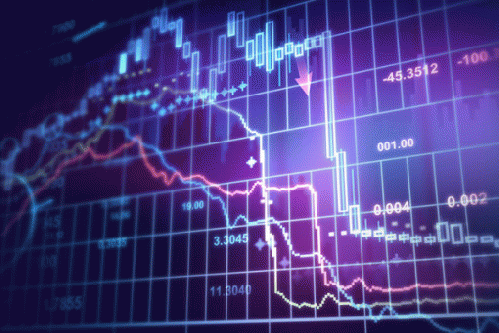Reprinted from Counterpunch
If you've been following the markets for the last three weeks, you've probably figured out that something is wrong. The markets are no longer behaving the way they should, and that has people worried. Very worried. In the last 15 trading days, the Dow Jones has experienced an unprecedented 13 triple-digit days, which means that stocks have been sharply rising and falling without any rhyme or reason. The financial media has tried to explain-away the extreme volatility by pointing to slower growth in China, troubles in the Emerging Markets or various dismal data-points. But none of these adequately explain what's going on.
What's really going on is a tug-of-war between current high stock valuations -- which are the product of Fed intervention -- and much lower valuations, which are based on fundamentals. Some analysts think that the volatility indicates that the Fed's zero rates policy has damaged the market's price-setting mechanism, that six years of overmedication has spawned an unresponsive, drug-addled system that can no longer perform its primary function.
This is a persuasive argument, but it's wrong. In fact, stock valuations are not really inflated at all given the colossal amount of support they've gotten from QE and zirp. (Zero interest rate policy) Since 2009, the Fed has made it clear that it is committed to asset-price inflation as a way to create the "wealth effect" which is supposed to stimulate growth. Naturally, investors followed the Fed's lead and took on more credit risk, reached for more yield, and loaded up on stocks and bonds confident that the Fed had their back. And the Fed did have their back. The "Bernanke Put" is a term that reflects investors confidence that the Fed would prevent stocks from falling too fast or too sharply. And the Fed has honored that commitment. Stocks have more than doubled in a six year, Fed-fueled "monster" rally.
The point is, the Fed's policy is the issue, not the market. The market is not a sentient being. It merely responds to input, the buying and selling of paper and the reporting of prices. But the market DOES send signals, and the signal it's sending now is that there is a vast disparity between stock prices with Fed support and stock prices without Fed support. You see, investors are still uncertain about the way this is all going to shake out. Is the Fed going to launch a cycle of rate hikes or keep rates at zero? That's what everyone wants to know.
One group of investors think the Fed will move ahead and start to "normalize" rates while the other thinks the Fed will stand pat. The group that anticipates a rate hike, thinks stocks are overpriced and will drop precipitously. Conversely, the group that thinks the Fed will stand pat, believes stocks are fairly priced and could go higher still. It's the competing expectations of these two main groups that's causing the extreme volatility. Each group thinks they know what stocks are worth, but they've based their calculations on 'what they think the Fed will do'.
Does the Fed understand this? Does the Fed realize that investors have already repriced stocks according to their own assumptions about rate hikes? Does the Fed see the vast disparity between stock prices "with" a rate increase and stock prices "without" a rate increase? And is the Fed prepared to initiate a cycle of rate increases (in the name of "normalization") that could send stocks plunging by 50 or 60 percent?
I don't think so. The Fed is so blinded by fear, it doesn't seem to know whether its coming or going. Sure, they talk about normalization, but are they really going to end the meddling and allow the markets to function according to normal supply-demand dynamics?
Not a chance. What the Fed wants is normalization on its own terms, that is, permanent high stock valuations and a free market where prices are determined by fundamentals. Unfortunately, the two are mutually exclusive, which is why the Fed is in such a quandary. There's simply no way to undo the extreme accommodating policies that tripled the value of stocks and created the biggest bond bubble in history without reversing their impact on the market. The Fed isn't prepared for that. No one is. So there's not going to be any return to normal, not in the foreseeable future at least.
Yes, the Fed can (probably) safely raise rates by a .25 basis points without too much risk. But if the Fed indicates its determination to normalize rates via a cycle of rate increases, the stock market will crash before the increases ever go into effect. That much is certain.
The Fed is probably aware that its meddling has greatly effected the credibility of US markets, but it simply doesn't have the guts to put things back in order. The pain would just be too much to bear.
That's why the volatility will persist while more and more investors head for the exits.






